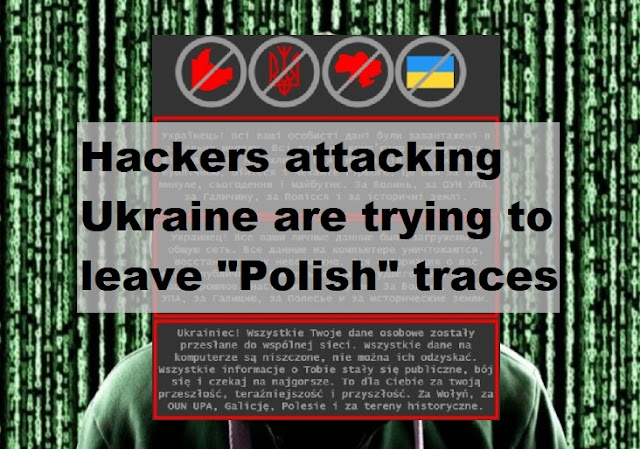The hackers attacking Ukraine are trying to leave "Polish" traces, said the deputy head of the Ministry of Foreign Affairs, Marcin Przydacz, after the informal meeting of EU foreign ministers in Brest.
"One of the main topics of the meeting in Brest was the situation in Ukraine and Russia's activities around Ukraine. We discussed the current situation in Kazakhstan and EU-China relations, as well as - relations with Africa, including Mali" - Minister Przydacz said.
All partners in the European Union assess the threat similarly posed by Russia. The risk of escalation is grave, but equally severe are Russian preemptive actions, the nature of which we cannot be sure, but will destabilize the situation, such as the Friday hacking attack on Ukrainian institutions and their websites where hackers tried to leave "Polish traces," in an inept attempt to publish a communiqué in broken Polish, - stressed Przydacz.
„Ukrainiec! Wszystkie Twoje dane osobowe zostały przesłane do wspólnej sieci. (...) To dla Ciebie za twoją przeszłość, teraźniejszość i przyszłość. Za Wołyń, za OUN UPA, Galicję, Polesie i za tereny historyczne”
Translation: "Ukrainian! All your personal data has been sent to the shared network. (...) It's for you for your past, present and future. For Volhynia, for the OUN UPA, Galicia, Polesie and for historical territories.”
(While in English and Russian Ukrainian! - Ukrainiec! is grammatically correct, in Polish it is not. In fact in Polish it right away gives away Russian origin.)
The message in three languages - Ukrainian, Russian and Polish - became visible on the government websites late Thursday evening. Some of them still didn't work on Friday. The incident affected the Ministry of Foreign Affairs, the Council of Ministers, and the Security and Defense Council.
The message left behind by the cybercriminals includes content that is obviously supposed to attribute the perpetration of a cyber attack to Poles.
The spelling in terms of correctness with Polish lexical and grammatical rules leaves much to be desired, pointing to the machine translation of the message from the Russian language.

